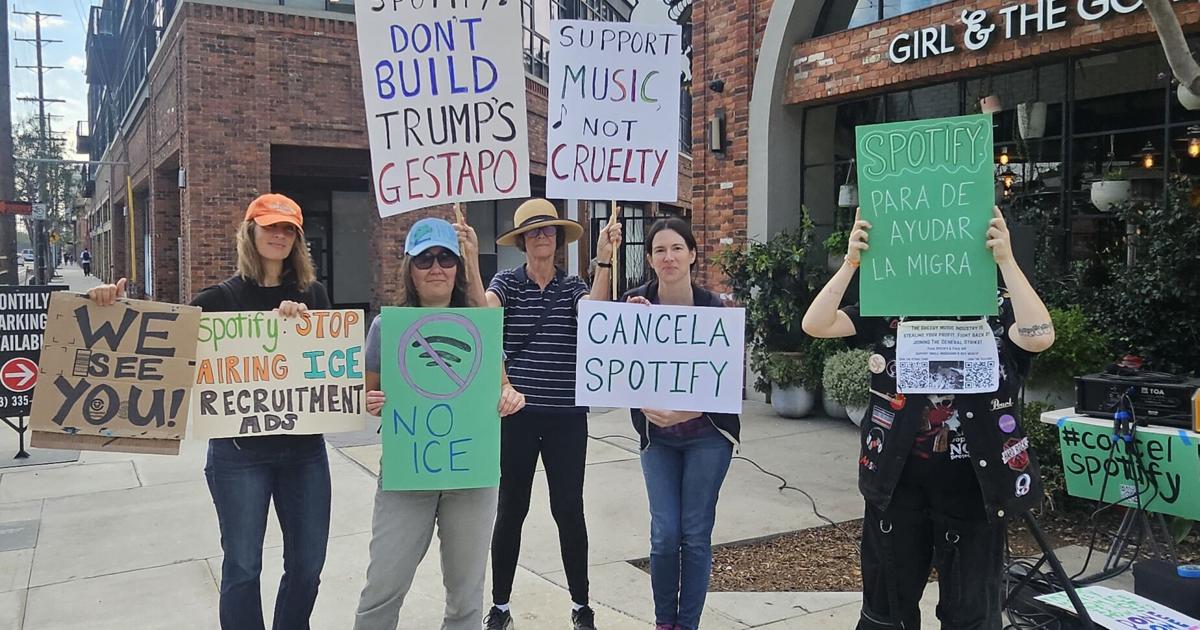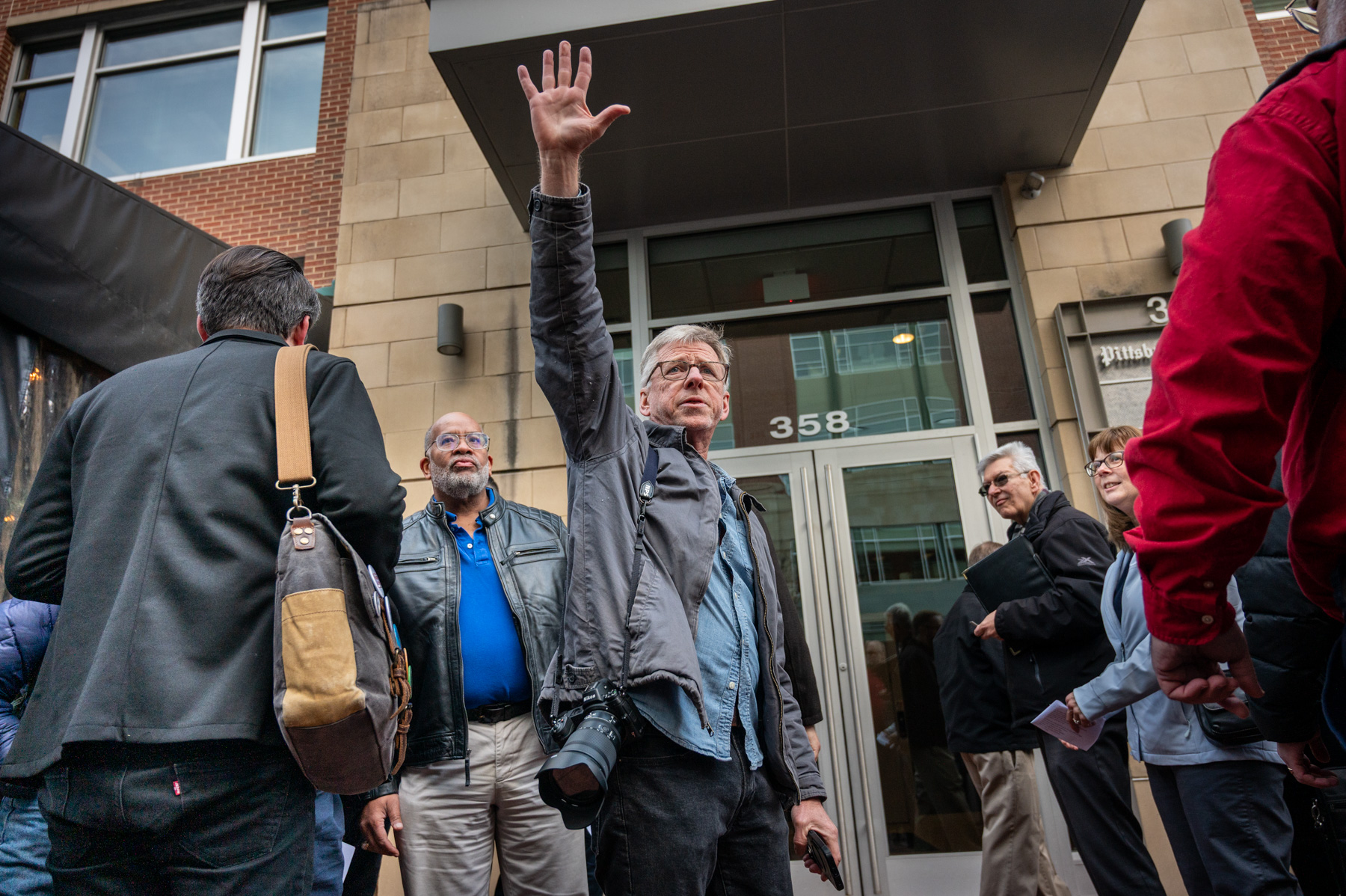Campaign Calls on Univision and Telemundo to Stop Airing Anti-Immigrant Ads
Mijente’s latest petition says broadcasting DHS commercials betrays Spanish-speaking communities in the U.S.

Earlier this month, the social-justice group Mijente launched a campaign targeting Univision (officially known as TelevisaUnivision) and Telemundo, accusing the two largest Spanish-language networks in the United States of helping the federal government spread fear within Latino communities.
The campaign, called “Apaga el Odio” (Turn Off the Hate), calls out both networks for airing Department of Homeland Security “self-deportation” ads — including messages where DHS Secretary Kristi Noem warns undocumented immigrants that “we will find you and deport you.”
“These ads are a betrayal to the Latino and immigrant communities who have been loyal to Univision and Telemundo for decades,” the petition reads. “They promote the same anti-immigrant agenda pushed by the Trump administration and only create fear, uncertainty in our households and communities.”
“Media platforms like Univision and Telemundo need to protect our communities and not target us,” it adds.
The campaign, which has gotten close to 5,000 signatures so far, has been circulating on social media, gaining the attention of award-winning political cartoonist Lalo Alcaraz, whose “Chinga Tu Migra Ads!” (“Screw Your ICE Ads!”) cartoon with the Telemundo and Univision logos forming a “Tu” (Spanish for “Your”) in the cartoon, has received over 20,000 likes on Instagram.

Other advocacy groups, such as the League of United Latin American Citizens (LULAC), have posted videos about the campaign, stating that the ads represent a breach of trust with Spanish-speaking viewers in the United States who rely on the two networks for news, entertainment and essential community information.
According to Axios, DHS has spent at least $51 million this year on ads encouraging “self-deportation,” under contracts potentially worth up to $200 million. There is no public breakdown of how much of this federal ad spending went specifically to Univision and Telemundo.

Meanwhile, U.S. Immigration and Customs Enforcement (ICE) is also investing heavily in recruitment messaging. PBS News Hour reports that ICE has spent millions on ads aimed at recruiting local police officers to support mass-deportation operations. (I’ve personally seen ICE recruitment ads during Boston Red Sox games and heard them on Boston’s 98.5 The Sports Hub radio network.) The same recruitment ads have appeared on major English-language networks and on social media, As for why such ads would appear on Spanish-language networks, according to the latest DHS statistics, Latinos comprise nearly 23 percent of the agency’s workforce.
Latino news outlets like CALÓ News have highlighted the Mijente campaign — as well as a parallel effort targeting Spotify, which is also running DHS ads.

A failure to protect the audience
In an interview with Pressing Issues, Tania Unzueta, Mijente’s political director, said the campaign began to take shape during the group’s national membership meeting in Chicago in October.
“I live in Little Village, one of the neighborhoods that was targeted,” Unzueta said. “Having been there and listening to the helicopter all the time and listening to just like the sounds of what an immigration raid sounds like, there’s been a deep impact on our communities’ psyche and my own psyche about just the level of stress that you’re feeling when the communities are under attack like this.”
She said the timing of the ads — emerging alongside reports of heightened enforcement — left many feeling that Spanish-language networks were not protecting their audiences. Instead, people described feeling blindsided inside spaces that were supposed to be safe.
What especially struck Unzueta was the contrast between the networks’ own reporting and the DHS ads they aired.
“There were a lot of folks who were coming in really concerned that their parents were the ones who were consuming this media and definitely a lot of anger around the feeling of hypocrisy, like they just interviewed this person and then in the next minute they have these ads playing at the same time,” she noted.
Unzueta emphasized that the Mijente campaign is not directed at Univision or Telemundo journalists, who, she noted, are doing a strong job of covering immigration enforcement in Latino communities. The focus is on the messaging the ads send to these communities and the networks’ decisions to air them.
“These ads are completely connected to this concept of attrition, where the idea is to create such a hostile environment for immigrants that they leave on their own, and that we leave on our own. And I feel like the ads are exactly part of that plan,” Unzueta said.
Univision and Telemundo respond
Pressing Issues reached out to both networks, and each provided a statement following several attempts to get them on the record.
“TelevisaUnivision applies a uniform set of advertising standards across all of our media platforms. These standards evaluate legal compliance, factual accuracy, and appropriate disclosure, and they apply equally to all advertisers, including government agencies,” the TelevisaUnivision statement said. “Our News Division is run independently and not influenced in any way by any advertising on our networks or platforms. Noticias Univision remains fully committed to providing thorough, responsible, and ongoing coverage of the issues that matter most to our audience.”
Noticias Univision has reported on the Mijente campaign.
As for Telemundo, a spokesperson shared links to some of the journalism the team has done this year. The work cited included a one-hour Noticias Telemundo live town hall that Julio Vaqueiro anchored, regular segments on Noticias Telemundo AHORA featuring legal experts answering viewer questions and “Telemundo Te Ayuda,” a Spanish-language resource hub with information on immigration, education, well-being and other issues.
“As with all broadcasters and media platforms, we receive advertisements from a wide range of private and public sector organizations,” the Telemundo spokesperson told Pressing Issues. “Every ad we receive is subject to the same standards and guidelines, independent of source, issue or position. In this case, the ads in question met the necessary standards to air.”
At the heart of the Mijente campaign is a demand for transparency and accountability from the networks that millions of Latino viewers trust. Mijente members say that ads urging people to self-deport have shaken that trust.
“And this is about pushing back on this culture of fear,” Unzueta said.
Update, Nov. 26
Mijente sent Pressing Issues the following statement in response to the Univision and Telemundo statements about their campaign:
“If airing DHS-funded ads built on fear, vague warnings, and no verifiable information, the advertising standards of Univision and Telemundo are failing our communities. By choosing to broadcast government propaganda, Univision and Telemundo are undermining the very principles they claim guide their work. If these are the kinds of ads they are willing to air, then their standards need serious review because no responsible network should help spread fear and propaganda in the communities that rely on them.”
Open tabs
After three years on strike, journalists at the Pittsburgh Post-Gazette returned to work for the first time. Last week, a court ruled in favor of a National Labor Relations Board decision that supported their return to work.
“We’re not here for revenge. We’re not here to destroy the Post-Gazette. We are here to rebuild it,” Newspaper Guild of Pittsburgh President Andrew Goldstein said. “You get to decide on your role in that. We’ve already decided on ours.”

The kicker
“I don’t think you can justify the ads by saying that you’re representing the perspective of the Latino community. I think it’s clear that the Trump agenda is not just anti-immigrant, but also anti-Latino, which is their main audience” — Tania Unzueta, Mijente
About the author
Julio Ricardo Varela is the senior producer and strategist at Free Press. He is also a working journalist, columnist and nonprofit-media leader. He is a massive Red Sox, Knicks and Arsenal fan (what a combo). Follow him on Bluesky.
Editor’s Note: Pressing Issues will not publish on Nov. 28. We will return on Dec. 2.








